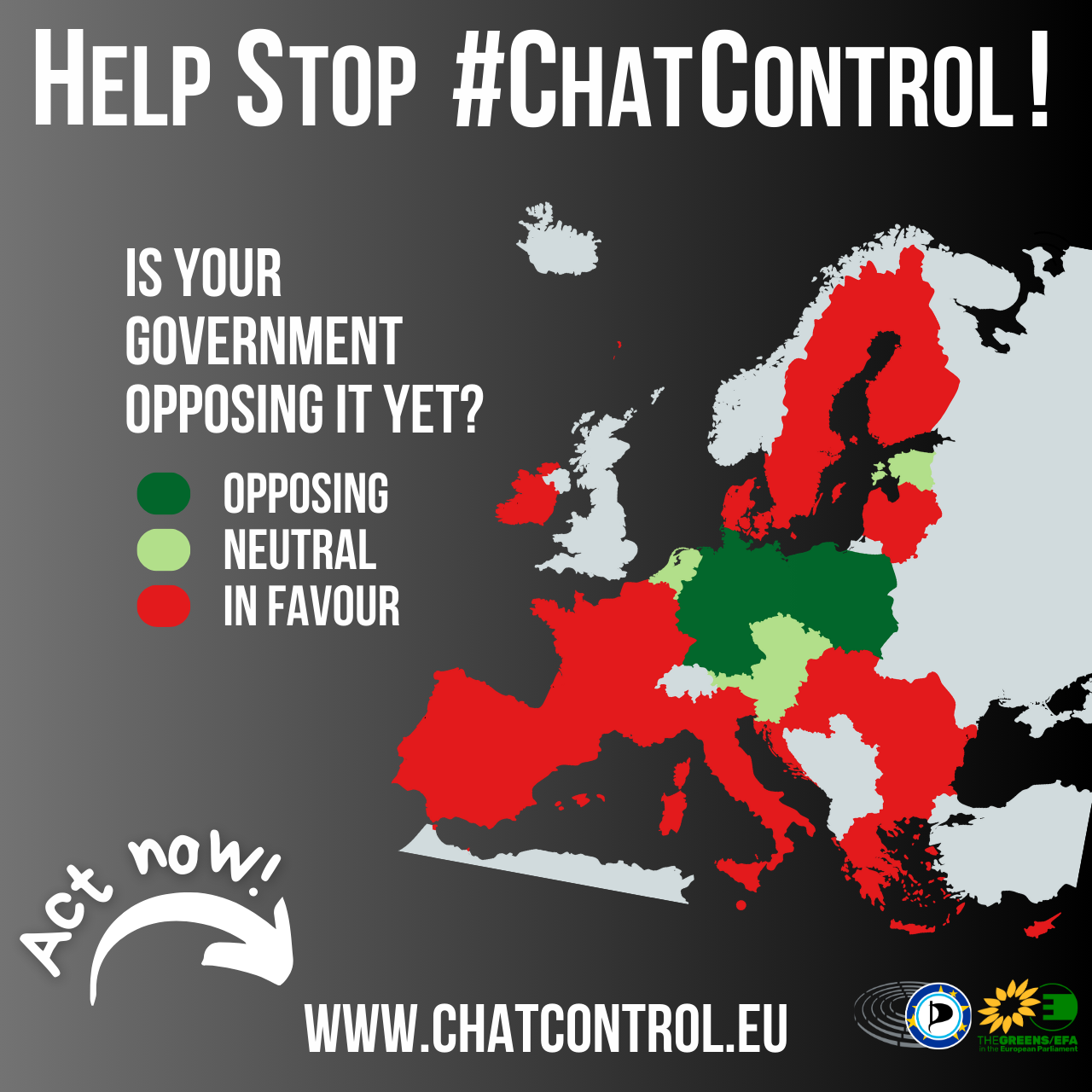‘Let yourself be monitored’: EU governments to agree on Chat Control with user “consent” [updated]
Based on a new proposal by the Belgian Minister of the Interior, EU governments could endorse the much-criticised child sexual abuse regulation (CSAR or chat control) as early as June after all. This is what internal information leaked to Pirate Party MEP and shadow rapporteur Patrick Breyer reveals.
Specifically, according to the proposal, users of apps with a communication function would have to agree via terms and conditions or pop-up messages that all images and videos sent to others will be scanned automatically and possibly reported to the EU and the police. To this end, monitoring backdoors would need to be integrated into previously securely end-to-end encrypted messenger services, even though the Belgians claim that their proposed ‘upload moderation’ scheme differs from the much criticised ‘client-side scanning’. If a user does not agree to the scanning of their private photos and videos, they would still be able to use the service for sending text messages, but would no longer be able to share images and videos. The scanner algorithms are supposed to report known CSAM as well as unknown images and videos that are deemed potentially suspicious by ‘artificial intelligence’ technology. The scanning of text messages for indications of grooming, which has hardly been used to date, would be removed from the draft legislation, as would the scanning of audio communication, which is not in use at all.
When the proposal was first presented on 8 May, several previously critical governments expressed their support and openness. The proposal is to be discussed again the day after tomorrow (24 May). The EU interior ministers will meet directly after the European elections and could endorse the draft legislation.
‘The leaked Belgian proposal means that the essence of the EU Commission’s extreme and unprecedented initial chat control proposal would be implemented unchanged,’ warns MEP and most prominent opponent of chat control Patrick Breyer (Pirate Party). ‘Using messenger services purely for texting is not an option in the 21st century. And removing excesses that aren’t being used in practice anyway is a sham.
Millions of private chats and private photos of innocent citizens are to be searched using unreliable technology and then leaked without the affected chat users being even remotely connected to child sexual abuse – this would destroy our digital privacy of correspondence. Our nude photos and family photos would end up with strangers in whose hands they do not belong and with whom they are not safe. Despite lip service being paid to encryption, client-side scanning would undermine previously secure end-to-end encryption in order to turn our smartphones into spies – this would destroy secure encryption.
I am alarmed that EU governments that have been critical so far are praising the repackaged plans, which threatens to overturn the previous blocking minority. Not even a written opinion from the Council’s legal service on this obvious violation of fundamental rights has yet been requested. If the EU governments really do go into the trilogue negotiations with this radical position of indiscriminate chat control scanning, experience shows that the Parliament risks gradually abandoning its initial position behind closed doors and agreeing to bad and dangerous compromises that put our online security at risk.
Now is the time to take to the barricades for privacy and secure encryption!’
Breyer’s information site and document archive on the chat control proposal
Update of 23 May: netzpolitik.org has published the document which this analysis relies on in the meantime (in German).

